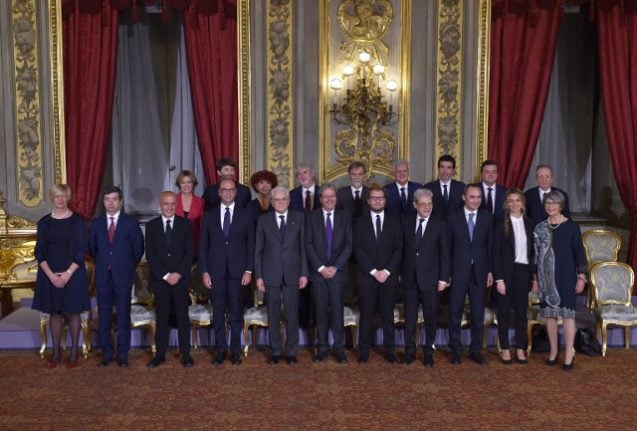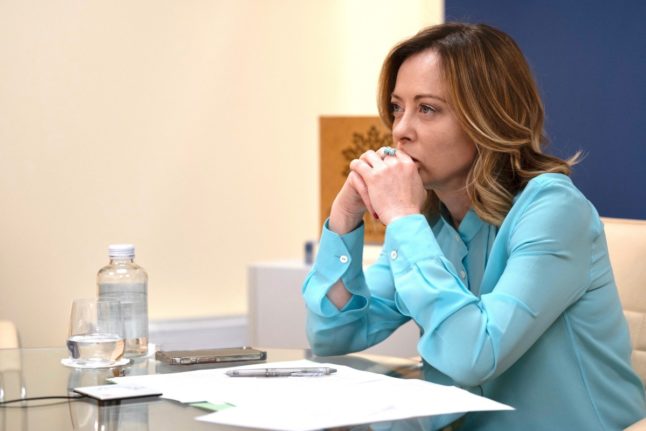Here are some of those from the centre left-right coalition tasked with key roles in managing a potential banking crisis in the eurozone's third largest economy as well as reforming a key electoral law.
Paolo Gentiloni, prime minister

Photo: AFP
A trusted ally of his predecessor Matteo Renzi. This silver-haired former foreign minister, 62, is a former student radical who comes from a well-to-do Roman family with aristocratic roots.
He is widely seen as having done a good job as foreign minister as Italy has played an unusually proactive role on the world stage, notably in relation to Libya, and in building bridges with Iran after the lifting of international sanctions.
PROFILE: Paolo Gentiloni, a former radical, journalist and 'workaholic'
Angelino Alfano, foreign minister

Photo: AFP
He was interior minister and deputy prime minister under Renzi, and heads up the New Centre Right (NCD) party, the government's coalition partner.
Born in 1970, he was the right-hand man to billionaire former PM Silvio Berlusconi for many years. He made his name as the architect of a law intended to shield Berlusconi from prosecution, but broke all ties with the media magnate in 2013.
Pier Carlo Padoan, finance minister

Photo: AFP
A former chief economist at the Organization for Economic Co-operation and Development (OECD), the 66-year old also served as the Italian executive director at the International Monetary Fund (IMF).
As finance minister under Renzi, he has been working flat out on a plan to save Italy's third-biggest bank, troubled lender Monte dei Paschi di Siena (BMPS), should it fail to raise the necessary funds to stay afloat. His reappointment is likely to soothe investors worried about contagion.
READ MORE: Here's what you need to know about Italy's banking crisis
Marco Minniti, interior minister

Interior Minister Marco Minniti (R) and Justice Minister Andrea Orlando. Photo: AFP
The 60-year old was the state secretary with responsibility for the security services in the outgoing administration and the one before that. He was deputy interior minister in the Romano Prodi government of 2006 to 2008.
Andrea Orlando, justice minister
The 47-year old, who does not have a university degree, held the post of environment minister under Enrico Letta (2013 to 2014).
When he was appointed justice minister by Renzi, Italian media reports said he was chosen as part of a deal made between Renzi and Berlusconi, because he presented little threat to the media magnate, whose legal troubles were hindering his political career.
Roberta Pinotti, defence minister

Photo: AFP
The 55-year-old former schoolteacher, who stays on in defence, was the first woman to hold the position of president of the Defence Commission in the lower house of parliament.
Valeria Fedeli, education minister

Photo: AFP
The 67-year old is a former trade unionist and deputy speaker in the senate who has campaigned hard to fight violence against women.
Maria Elena Boschi, undersecretary to the PM

Photo: AFP
Boschi was the minister in charge of constitutional reforms under Renzi, and therefore of the very reform that was put to a referendum, and led to his downfall.
The 35-year old is a die-hard Renzi ally and is expected to ensure the former PM's voice is still heard in the new administration.
READ MORE: Start spreading the news – we haven't seen the last of Matteo Renzi



 Please whitelist us to continue reading.
Please whitelist us to continue reading.
Member comments